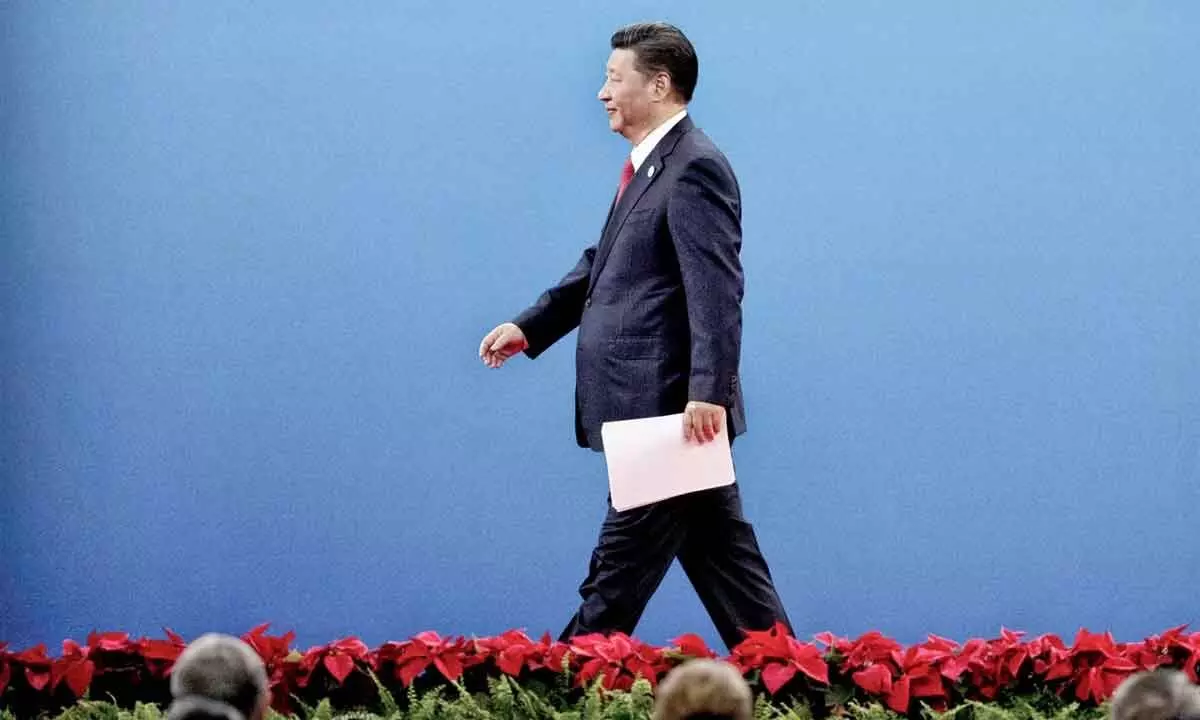Xi’s ‘project of the century’ drawing flak

In a rather major blow to China’s expansionism, Italy has exited Xi Jinping’s ambitious $1 trillion project of the century, Belt and Road Initiative (BRI), despite warnings of negative consequences from the dragon country. Rome’s move is sure to impinge on other members of the BRI. Italy joined the largest ever global infrastructure project in 2019. The move then stunned the western world, especially the US and the Group of Seven (G7).
Four years on, strategic re-assessment of the project by Prime Minister Giorgia Meloni and yielding of little benefits for its economy are the driving factors behind the exit move. The project began to be looked upon by the Italians as China’s means of driving edge in the European Union and between the EU and the US, by drawing EU members to its side. This was reflected in China’s investments in non-Italy countries, which far outstripped those in Italy. Italians were so dissatisfied that recently Defense Minister Guido Crosetto dubbed Italy’s move to join the BRI an “improvised and atrocious act.”
Launched in 2014, BRI is China’s ambitious plan to develop two new trade routes – maritime and land – connecting China with the rest of the world. Land route follows the ancient Chinese Silk Road connecting Europe through Central Asia. As for the sea route, it is to secure its vast maritime trade most of which currently passes through the Malacca strait off the coast of Singapore which is a major US ally. The new sea trade follows old Marco Polo route which passes along Southeast Asia, Africa, and Europe, bypassing the Malacca Strait.
Participation of more than 150 countries, most in the Global South, has certainly turned the BRI into the most popular international public product and the largest international cooperation platform in the world today. Ports, bridges, industry, and infrastructure are financed in the beneficiary countries. Billions of dollars were committed. However, BRI has drawn fire that China uses it as part of debt-trap diplomacy to bind the partners under its sphere of influence and take over their assets if loans are not repaid. Pakistan and Sri Lanka are groaning under Chinese loans. Concerned over the opaque pricing of projects by the Chinese companies, countries like Malaysia and Myanmar are renegotiating the deals to bring down rates.
As for India, it has not joined the BRI, and repeatedly protested over China Pakistan Economic Corridor (CPEC), the flagship project of BRI, as it violates its sovereignty, passing through Pakistan-occupied Kashmir (PoK). At the Shanghai Cooperation Organisation (SCO) summit in July this year, India refused to endorse the BRI, as it failed to honour the basic principles of SCO charter, especially the sovereignty and territorial integrity of member-states. With China not only refusing to pay heed to India’s concerns, but also making border intrusions, India seeks means to strike alliances and grow its economy. The India-Middle East-Europe Economic Corridor (IMEE EC) signed during the G20 Summit this year is viewed as the alternative to the BRI. In fact, a day after joining the Indo-US initiative, Italian PM hinted to China about their intention to quit the BRI. If more countries pull out of the BRI, it will be entirely of China’s own making, for mending a purely economic project to bolster its expansionism. It is sad that the project with a great potential to benefit poor nations is being shunned as China’s geopolitical ambitions overweigh economic considerations.










